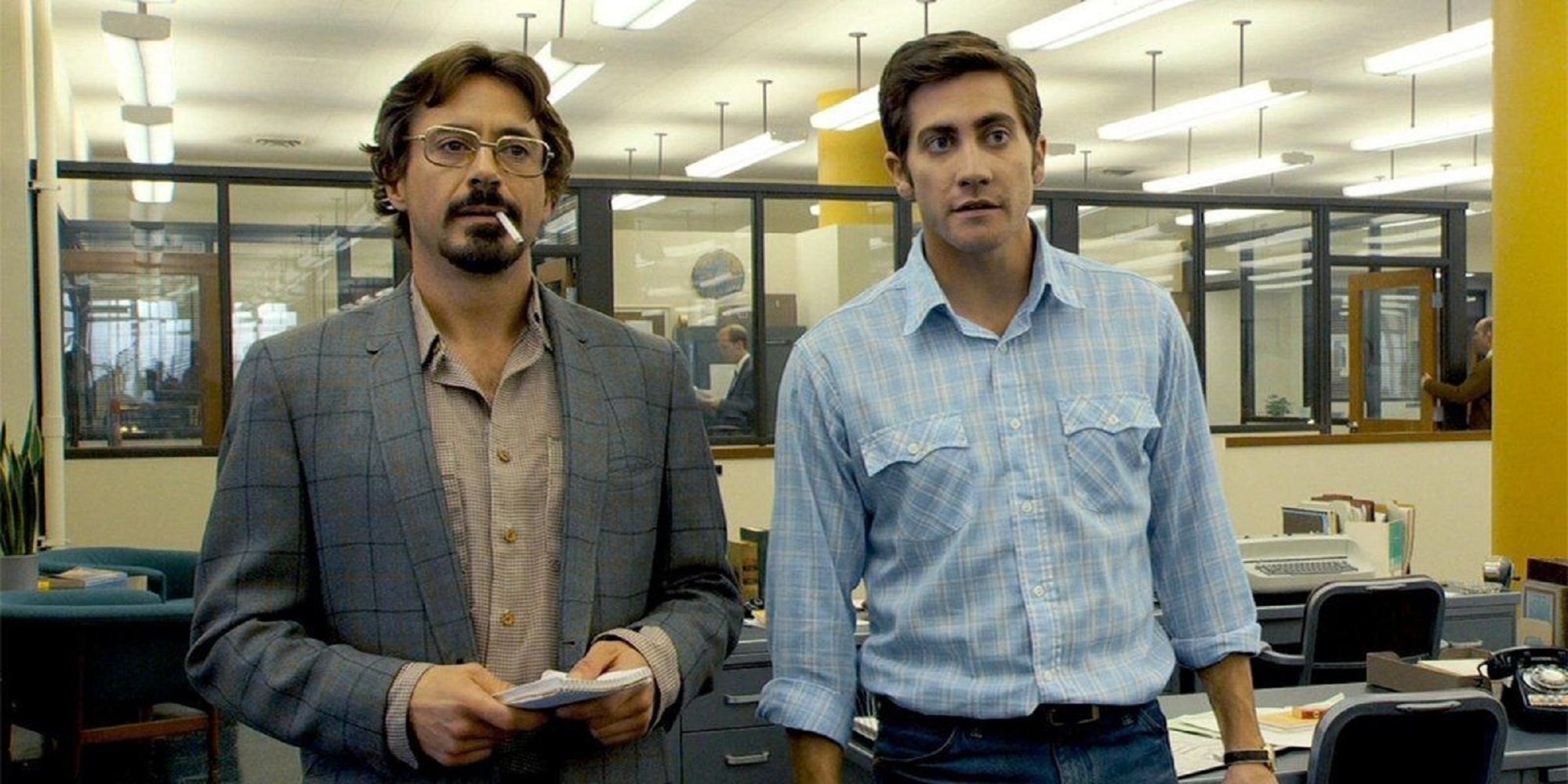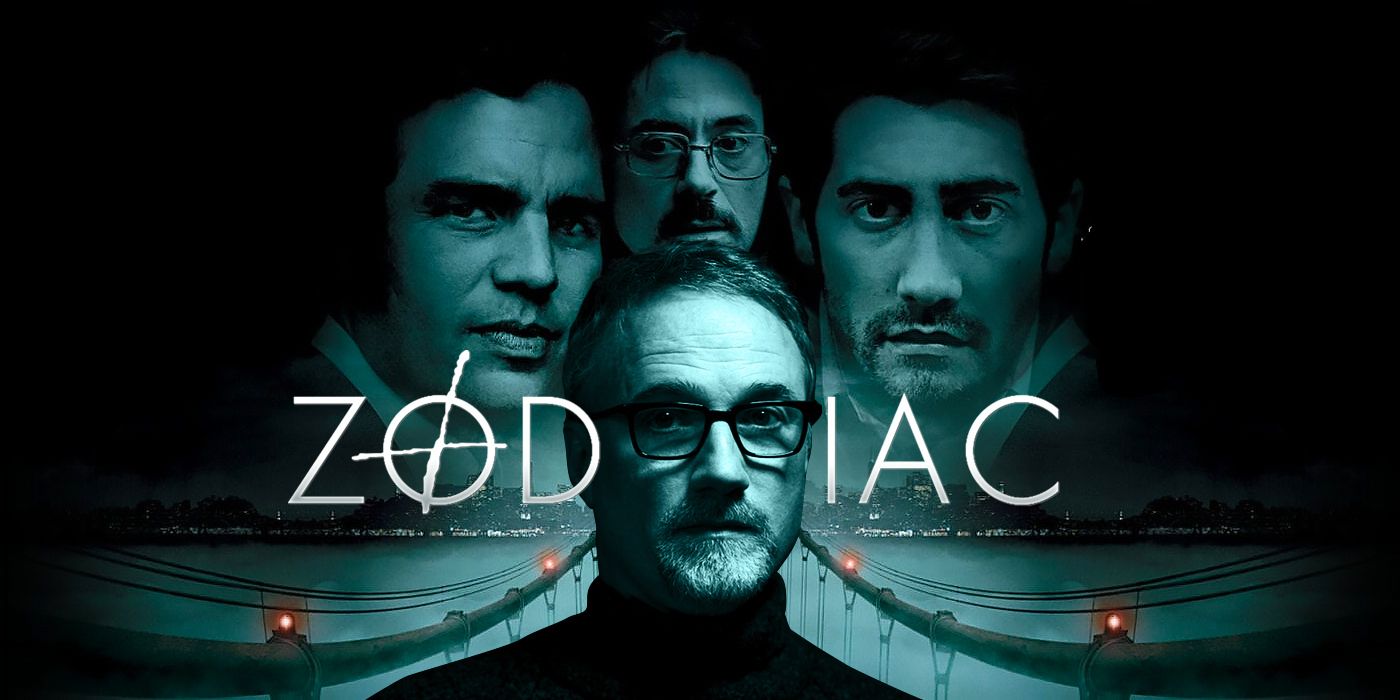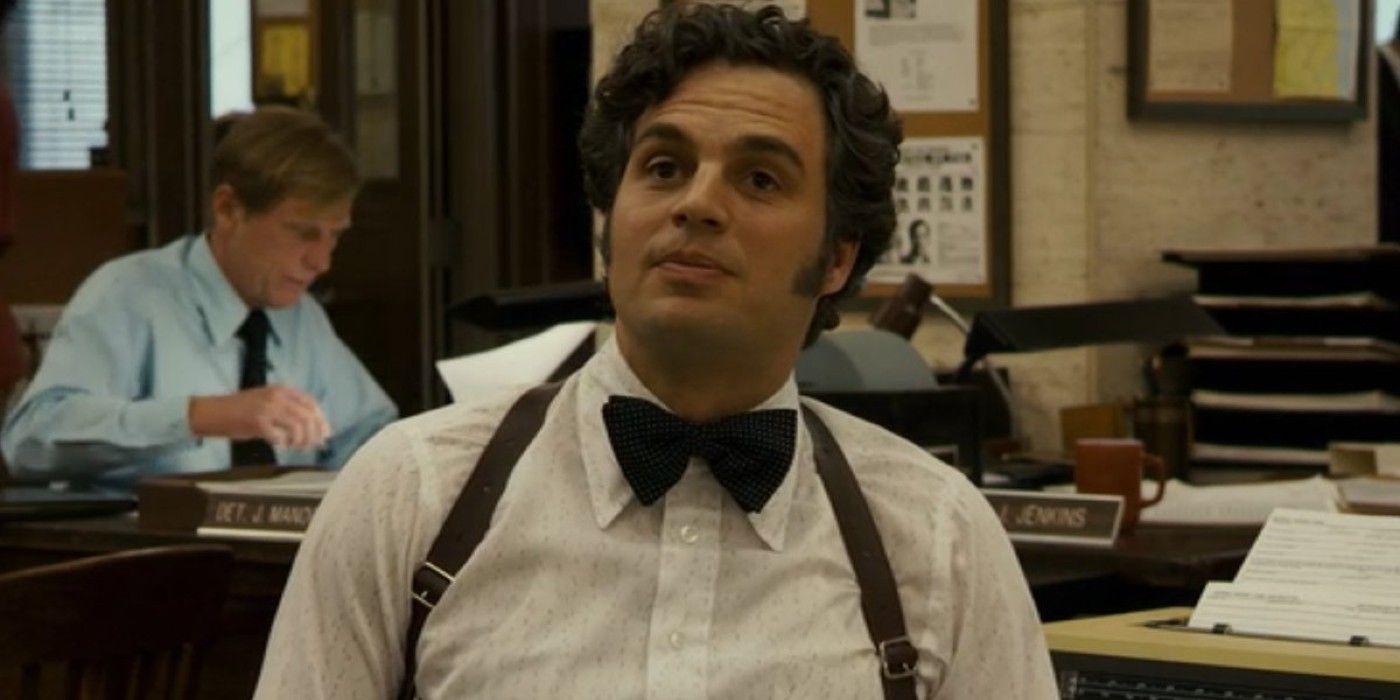David Fincher's 2007 thriller, Zodiac, does what few films can; it doesn't give you the desired outcome at the end but still works as a taut psychological film. Based on the non-fiction novels Zodiac and Zodiac: Unmasked by Robert Graysmith (who is played by Jake Gyllenhaal in the film), Zodiac centers around the string of murders and the exhaustive search for a serial killer who is preying upon young couples in the late 60s and into the 70s. Set in Northern California around the Bay Area, it's remarkably true to its source material and defies the typical formula for the serial killer movie. We've grown accustomed to films that are centered around the pursuit of solving murder mysteries like Murder On the Orient Express or Sherlock Holmes: A Game of Shadows with Hercule Poirot and Holmes basking in the brilliance of their deductive acumen after piecing together a series of clues and catching the deplorably evil characters. Even Fincher's other murder movie, Gone Girl, provides all the answers halfway through the movie - no cool girl stone left unturned.
It's a formula that works. These are films that we enjoy and are lauded for their thrills and chills. Zodiac doesn't do that, and it's what sets it apart in the genre. It's because of the success of prevalent films like the aforementioned that we as an audience have been groomed in a way to expect a certain outcome in these films. That's not always the case. In Zodiac, you know there will not be a nice, neat resolution, yet it still delivers just as much and then some.
 Zodiac Shows the Toll the Investigation Takes on the Characters
Zodiac Shows the Toll the Investigation Takes on the Characters
The heavy lifting done by Fincher is a key aspect of what makes Zodiac pop. He masterfully interweaves elements of a detective story with the edge-of-your-seat dramatic trepidation of a thriller. He takes us down avenues that both tease and frustrate while still ratcheting up the tension by telling a story with a historical fait accompli. Using the chemistry between three very different main characters, San Francisco Police Inspector Dave Toschi (Mark Ruffalo), San Francisco Chronicle cartoonist Robert Graysmith, and Chronicle crime beat reporter Paul Avery (Robert Downey Jr.), he examines how the search for the Zodiac takes its toll. With every taunting cipher they receive sending them down a series of rabbit holes that are nothing more than red herrings, Fincher applies more and more pressure that continues over a period lasting decades.
The Audience Is Drawn Into the Action
This is what makes Zodiac so unique in the mystery genre. Despite the fact that our protagonists can't seem to gain any traction in their pursuit, Fincher's firm pacing and rhythmic tempo won't allow the viewer to jump ahead of things. His ability to keep you sucked into the moment at hand is a masterstroke and makes the film work despite the foregone conclusion. With quick, well-written newsroom and police station exchanges, Fincher also impresses upon you the urgency that the players involved felt at the time. Whether it's the playful banter of the boozy Avery and the intrepid, out-of-his-element Graysmith or the harried attempts of Toschi and his partner, Inspector Bill Armstrong (Anthony Edwards), to coordinate with other officials in several different California counties, it's a pleasure to be in the moment with them. But at the same time, it's maddening that they can't seem to work in lockstep together.
We Never Stop Rooting for the Characters
There's a rewarding feeling that comes with the process of watching Avery, Toschi, and Graysmith put the pieces of the puzzle together. With every cipher solved, and each handwriting sample analyzed, the film executes at such a brisk pace that the fact that the identity of the Zodiac is never revealed slowly becomes an afterthought. It's the small victories throughout the process that keeps you on the hook and vested in these characters who can't seem to catch a break. And as the overarching futility begins to affect all three men in different ways, you want to pick them up and brush them off. For the bachelor Avery, it's a descent into heavy drinking and drugs that eventually gets him fired from The Chronicle. Toschi is removed from the homicide division when, after years of coming close but never catching The Zodiac, is burnt out.
For Graysmith, it's his unyielding obsession with the Zodiac that ultimately costs him his family. But unlike the other two, the amateur sleuth uses the failures as motivation, becoming more and more engaged with the puzzle and doubling down in his efforts to find the killer. Now into the late 70s, the rejuvenated cartoonist turned detective reconnects with the weary Toschi and uses his connections to pursue yet another angle that could reveal their suspect. In the process of writing a book on the Zodiac that would serve as the source material for the movie, Graysmith is on his own. And again, the manner in which Fincher frames Graysmith's obsession with connecting the dots of this decade-long manhunt is a one-step forward, two steps back stagger for the audience. Quick cuts of Graysmith taking action set against the backdrop of the hilly San Francisco landscape and cloak-and-dagger-style meetings with unscrupulous and suspicious players make you want him to somehow rewrite history and catch the killer, but he doesn't. Maybe it's the inherently human nature of rooting for the underdog that works to the film's advantage as well. As you witness him zeroing in on a potential suspect, you still can't help but take the bait one more time only to arrive at yet another vexing, fruitless conclusion.
Fincher Doesn't Give Us the Ending We Want
Ironically, almost 22 years later in 1991, many years after the case of the Zodiac had chewed up our three protagonists and unceremoniously spit them out, the sole survivor of one of the serial killer's attacks comes out of the woodwork to identify Arthur Lee Allen as the man who shot him in 1969. The same man that Toschi, Graysmith, and Avery had nearly nabbed in the early 70s. It would have been nice to see what had become of the three men and see them get the credit they deserved for uncovering Allen. A Poirot twirling his handlebar mustache or Holmes confidently sucking from his pipe type of moment, but we don't get that either. And to further frustrate, when new officials were set to investigate Allen's potential involvement in the Zodiac killings, he died of a heart attack shortly after being identified and before authorities could pursue the new lead. Whether Allen was the Zodiac remains unclear and an air of exasperation at the lack of closure that we all crave remains, but the 2007 film that chronicled his pursuit stayed true to the facts and never left us hanging, and delivered a story about a mystery that failed to deliver us a killer.


